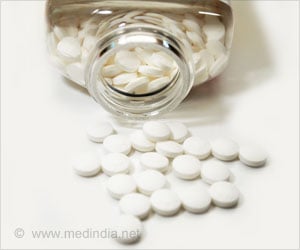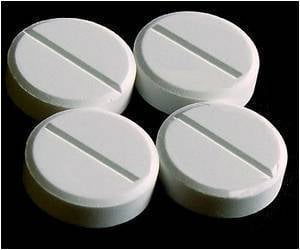- Life-threatening complication of an infection or injury may result in sepsis.
- Nonsteroidal anti-inflammatory drugs (NSAIDs) like aspirin and ibuprofen are commonly used drugs for the treatment of pain conditions and arthritis.
- NSAIDs are caspase inhibitors that could help in the treatment of sepsis.
Due to the increased number of cases that are rising in intensive care units, pharmaceutical companies are trying to develop drugs that can combat the condition.
Hang Hubert Yin, a biochemistry professor at CU Boulder’s BioFrontiers Institute and lead author, said, "NSAIDS like ibuprofen and aspirin are among the most prevalent pharmaceuticals worldwide, with over 30 billion doses taken annually in the United States alone. But their precise mechanisms of action are not entirely understood."
"We provide the first evidence for a novel mechanism of action for NSAIDS, one we believe could have a direct impact on people's lives."
The research paper was published in the journal Cell Chemical Biology.
The research team has far known that the NSAIDs may work by inhibiting an enzyme called cyclooxygenase (COX). These drugs may be accompanied by side effects; some of them showed a risk of heart attack or stroke.
Yin, said, "For instance, some chemicals derived from bacteria actually penetrate the cell and trigger the caspase response, prompting the cell to commit suicide. This is also known as apoptosis."
The failure of late-stage clinical trials on anti-sepsis drugs that can target an immune receptor which is called the Toll-like receptor 4 (TLR4) located on the cells were found to be disappointing.
The research team tried to find the key to develop an antiseptic therapy which can simultaneously target caspases.
NSAIDs Effective for Sepsis Treatment
Around 1,280 existing FDA-approved drugs for caspase-inhibiting activity were screened. Out of the 27 drugs which possessed the caspase-inhibiting activity, half of them were NSAIDs.Eight of the top ten drugs with caspase-inhibiting activity were found to be NSAIDs.
"It was a complete surprise," said Yin.The theory was further tested using in vitro biochemical and biophysical assays and in vivo experiments with roundworms.
The scientists were able to show NSAIDs that were effective in delaying the cell death in worms by blocking the caspase activity.
Although, it is questionable to use existing NSAIDs in higher doses for the treatment of sepsis. The side effects of the drug may be too great, says Yin.
Further, follow-up studies are being carried out on whether new drugs can be developed by combining caspase-inhibiting NSAIDS and TLR4 inhibitors.
Nonsteroidal Anti-inflammatory Drugs (NSAIDs)
These drugs are commonly used for pain conditions and relieve inflammation in adults. They can be effective for arthritis and other rheumatic conditions as well.Aspirin, Ibuprofen and Diclofenac are some of the common NSAID drugs that are being used.
People may take NSAIDs for sprains, headache, and back pain. It is estimated that around 16,500 people die every year due to NSAID complications.
Side Effects of NSAIDs
- Bleeding
- Stomach problems
- High blood pressure
- Kidney problems
- Heart problems
- Rashes
Facts on Sepsis
- Sepsis is colloquially known as ‘blood poisoning.’
- Infections often trigger sepsis.
- The Centers for Disease Control and Prevention (CDC) found more than 90% of adults and 70% of children with sepsis were at a higher risk for another health condition.
- Long-term effects of sepsis may lead to permanent organ damage; for example kidney damage can occur to sepsis patients who already have kidney problems.
Prevention of Sepsis
- Take proper vaccinations against influenza, pneumonia and other infections.
- Maintain good hygiene, and clean the wounds that cause infections.
- Notice symptoms and signs of infections at an earlier stage to start early treatment.
- Hang Yin et.al, 'Non-steroidal Anti-inflammatory Drugs Are Caspase Inhibitors' Cell Chemical Biology (2017);DOI Link: http://dx.doi.org/10.1016/j.chembiol.2017.02.003
- NSAIDs (nonsteroidal anti-inflammatory drugs) - (http://www.rheumatology.org/I-Am-A/Patient-Caregiver/Treatments/NSAIDs)
- Nonsteroidal anti-inflammatory drugs (NSAIDs) - (http://www.nps.org.au/conditions/nervous-system-problems/pain/for-individuals/medicines-treatments-for-pain/nsaids_pain_relievers)
- Sepsis Questions and Answers - (https://www.cdc.gov/sepsis/basic/qa.html)
- Sepsis facts - (http://www.world-sepsis-day.org/?MET=SHOWCONTAINER&vCONTAINERID=11)
Source-Medindia















